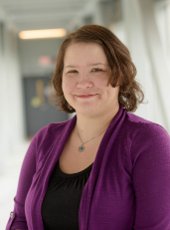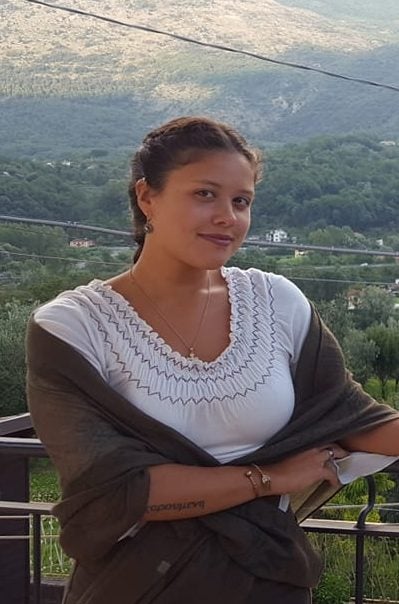Check out Dr. Chelsea Schelly’s sustainability blog post about Social Sciences’ new MS degree program in Sustainable Communities.
https://blogs.mtu.edu/sustainability/2022/09/19/new-ms-in-sustainable-communities/
Congrats to Hongmei Lu, recent EEP PhD graduate, on her new postdoc position with the Department of Human Geography and Spatial Planning at Utrecht University in the Netherlands. She is working on a European Research Council project on collaborative governance in urban planning.
Chelsea Schelly (SS), PhD student Don Lee (EEP PhD student), Michigan Utility Consumer Participation Board Member Elise Matz, and Joshua M. Pearce (MSE/ECE) have published “Applying a Relationally and Socially Embedded Decision Framework to Solar Photovoltaic Adoption: A Conceptual Exploration” in Sustainability.
Chelsea Schelly (SS) along with Emily Prehoda (EEP PhD Grad) and colleagues from The Nature Conservancy (Jessica Price) and Defenders of Wildlife (Aimee Delach and Rupak Thapaliya), have published “Ratepayer Perspectives on Mid- to Large-Scale Solar Development on Long Island, NY: Lessons for Reducing Siting Conflict through Supported Development Types” in Energies.
 The Energy News Network’s 40 Under 40 awards program highlights emerging leaders and their work in the United States’ transition to a clean energy economy. Read More…
The Energy News Network’s 40 Under 40 awards program highlights emerging leaders and their work in the United States’ transition to a clean energy economy. Read More…
 Marie Richards (PhD student, IHA) has been awarded one of eleven Tribal Food Systems Graduate Fellowships from the Intertribal Agricultural Council and the Inter-Institutional Network for Food, Agriculture and Sustainability. This competitive program provides direct financial support and mentorship for graduate research during the 2020/21 academic year, including mentorship from outside MTU, monthly cohort sessions, and dissemination of project results. The experience and networks fellows will gain through participating in this inaugural Indian Country food systems cohort will expand their network and exposure to scholars multifold. IAC is the nation’s largest and longest standing Native American agriculture and natural resources organization. IAC’s efforts over the past 30 years have supported programming and policy work impacting hundreds of Tribal communities and thousands of individual Tribal producers across the country. INFAS is a national network of food systems academics and institutions. This cohort consists of members from rural communities in South Dakota, to urban populations in California; from the islands of Hawaii, to the vast landscapes of Alaska. This inaugural fellowship year is guaranteed to impact food and agriculture scholarship nationally and beyond!
Marie Richards (PhD student, IHA) has been awarded one of eleven Tribal Food Systems Graduate Fellowships from the Intertribal Agricultural Council and the Inter-Institutional Network for Food, Agriculture and Sustainability. This competitive program provides direct financial support and mentorship for graduate research during the 2020/21 academic year, including mentorship from outside MTU, monthly cohort sessions, and dissemination of project results. The experience and networks fellows will gain through participating in this inaugural Indian Country food systems cohort will expand their network and exposure to scholars multifold. IAC is the nation’s largest and longest standing Native American agriculture and natural resources organization. IAC’s efforts over the past 30 years have supported programming and policy work impacting hundreds of Tribal communities and thousands of individual Tribal producers across the country. INFAS is a national network of food systems academics and institutions. This cohort consists of members from rural communities in South Dakota, to urban populations in California; from the islands of Hawaii, to the vast landscapes of Alaska. This inaugural fellowship year is guaranteed to impact food and agriculture scholarship nationally and beyond!
 Alexis Pascaris, Environmental and Energy Policy MS student, and and Joshua Pearce recently published U.S. Greenhouse Gas Emission Bottlenecks: Prioritization of Targets for Climate Liability in the journal Energies.
Alexis Pascaris, Environmental and Energy Policy MS student, and and Joshua Pearce recently published U.S. Greenhouse Gas Emission Bottlenecks: Prioritization of Targets for Climate Liability in the journal Energies.
The Torch Lake Area of Concern Public Action Council (TLPAC) will host the Statewide Public Advisory Council (SPAC) meeting in Houghton, Michigan on July 16 and 17, 2019 at Michigan Technological University’s Great Lakes Research Center in Room 202. Sessions are scheduled for 8:30 a.m. to 12 p.m. both days. In addition, there will be a tour of Torch Lake on July 16 after the end of the morning session. The Office of Great Lakes (OGL) staff who assist the SPAC will be in attendance to update the Council on Michigan and federal actions which affect the progress of cleanups in the Great Lakes.
Areas of Concern (AOCs) are highly polluted sites on bodies of water that pose a danger to their communities. There were originally fourteen AOCs in Michigan. The pollution problems of AOCs are specifically identified as Beneficial Use Impairments (BUIs) for each AOC. The role of a public advisory council is to identify the problems, do community outreach and develop a network of government and non-governmental groups to address the concerns of their communities. Torch Lake has recently been active in seeking solutions to the stamp sands dumped into the lake by former mining companies which have made it difficult to have healthy benthos, or aquatic life, due to the spread of sands throughout the bottom of the lake. New efforts are underway to revive Torch Lake’s benthos that could lead to a major clean up within the next decade. Along with the work being done by the state’s Department of Environment, Great Lakes and Energy Remediation Division to remove toxic chemicals along the west shore of Torch Lake, funding is being sought from the Great Lakes Restoration Initiative to find ways to repair the damage created by copper mining companies since the latter part of the nineteenth century.
The public is invited to the SPAC meeting on both days to hear about progress being made by the advisory councils in the entire state. The OGL and the Great Lakes Commission will update council members on state, federal and international activities. Research currently being conducted at the University of Michigan and Michigan Technological University will also inform council members of effective ways to engage their communities. The Keweenaw Bay Indian Community will have its President, Chris Swartz, explain the importance of Torch Lake to their community under their treaty rights and the work they have done to improve water quality on their reservation. SPAC meetings are an opportunity for members to network and to find out not only what concerns an AOC has, but also to see the host community and its attractions.
For information, contact Horst Schmidt, Vice-Chair of the SPAC at horsthear@yahoo.com or 906-369-3797.
by Kelley Christensen (Social Sciences)
The article, Sorting out a problem: A co-production approach to household waste management in Shanghai, China, published in Waste Management journal and co-authored by Hongmei Lu and Roman Sidortsov explores an innovative approach to waste management in Shanghai.
Rapid urban population growth in China has resulted in significant challenges for Municipal Solid Waste (MSW) management. To combat these challenges, Chinese authorities implemented a pilot program of MSW sorting in eight Chinese cities including Shanghai in 2000 but is yet to reach a widespread success. This paper uses a qualitative case-study approach to explore the potential of a community-based co-production strategy for household waste sorting as an alternative to the conventional top-down approach. Co-production implies the involvement of citizens, consumers, volunteers and/or community organizations in producing public service. We find two major drivers of the government-volunteer consortium and the peer-pressure effect help realize the potential of waste-management co-production at a lowered cost with improved efficiency and collaborative innovation. In addition, context-specific conditions including policy consistency, strong volunteer effort and compatibility with local culture to promote public participation must be present for further co-production application. We also acknowledge that the co-production approach would be most effective at the initial stage of policy implementation to foster the waste-sorting habit-formation in regions where the waste collection rates remain low.
Hongmei Lu (SS PhD student), Audrey Mayer (SFRES), Adam Wellstead (SS), and Shan Zhou (SS) published an article titled, “Can the dual identity of policy entrepreneur and policy implementer promote successful policy adoption? Vertical greening policymaking in Shanghai, China” in the Journal of Asian Public Policy.


